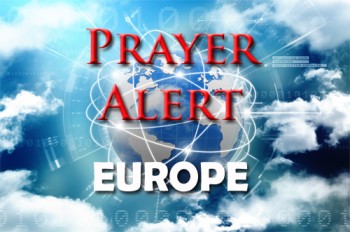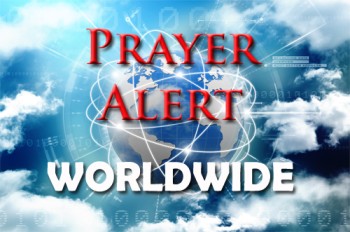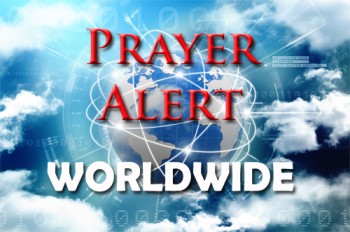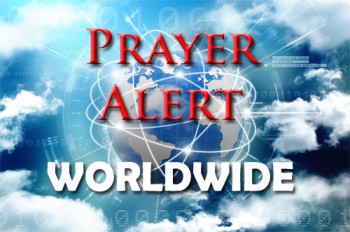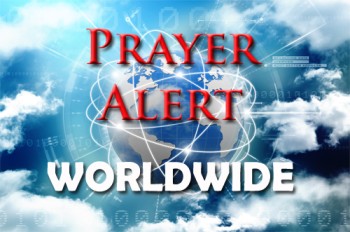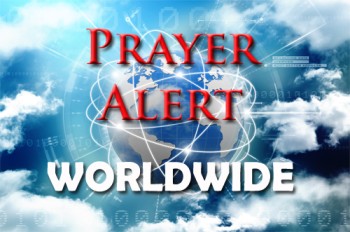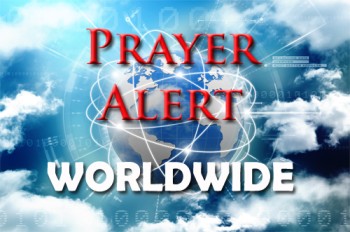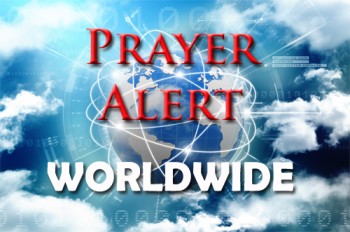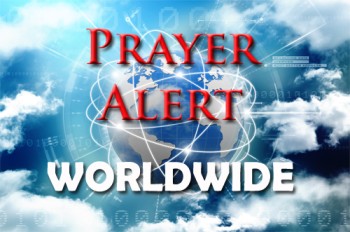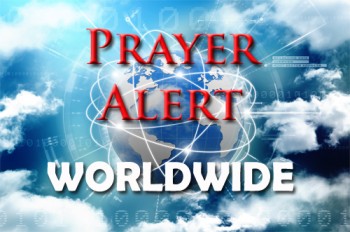Displaying items by tag: earthquake
Türkiye: ‘treat Istanbul quake as a serious warning’
The recent 6.2 magnitude earthquake which struck Istanbul on 23 April is being seen as a serious warning rather than a release of seismic energy, according to Japanese earthquake expert Yoshinori Moriwaki. While the quake caused no fatalities, he warned that a larger quake, possibly over magnitude 7.0, is likely in the coming twelve to fifteen years. Istanbul lies near the North Anatolian Fault (NAF), a historically active fault line responsible for many major earthquakes across Türkiye. Moriwaki explained that the NAF, along with the South Marmara Fault, poses a continued risk to the Marmara region, with Istanbul particularly vulnerable due to soft ground in coastal districts. He urged residents not to panic but to be prepared, looking for ground stability and building regulations when choosing homes. The April quake triggered hundreds of aftershocks and follows patterns seen in destructive historical events. Despite the threat, Moriwaki remains hopeful that awareness and preparation can mitigate future damage and save lives.
Myanmar / Thailand: devastating earthquake
A catastrophic 7.7-magnitude earthquake struck central Myanmar on 28 March, with the effects being felt as far away as Thailand and China. The death toll has already surpassed two thousand, with over 3,400 injured and many still trapped under rubble. Collapsed bridges and crumpled roads have delayed rescue efforts, and the secretive ruling junta has taken the unusual step of appealing for international assistance. In Mandalay, people are digging through debris with bare hands due to equipment shortages, while temperatures soar above 39°C (102°F). Communication breakdowns have forced rescue teams to rely on social media to locate victims. With rising temperatures and limited resources, rescuers fear more deaths are inevitable. Despite the odds, emergency workers remain committed to saving lives while grappling with overwhelming loss and unbearable heat.
Tibet: devastating earthquake
A devastating 7.1-magnitude earthquake struck Tibet on 6 January, claiming at least 126 lives and injuring 188, according to Chinese state media. Centred near the Nepalese border, the quake caused widespread destruction across remote Himalayan villages, damaging over 3,600 homes. Tremors were felt in Nepal, Bhutan, and parts of northern India. Rescue operations are under way, with over 400 individuals freed from rubble and 30,000 residents relocated. The harsh terrain and winter weather add challenges to the efforts. The quake caused significant damage in nearby Shigatse, a holy Tibetan city. Emergency aid, including tents and warm clothing, has been dispatched to support affected communities, where temperatures are expected to plummet below freezing. Chinese leader Xi Jinping has called on officials to make all-out efforts to search for and rescue survivors and provide for displaced residents, while the Dalai Lama extended condolences and prayers for victims. Rescuers continue to search for survivors in difficult conditions.
Taiwan: aftermath of major earthquake
Taiwan is grappling with the aftermath of its strongest earthquake in 25 years, leaving over 35 people missing and more than 660 trapped. The quake, measuring at least 7.2, struck near Hualien on 3 April, causing buildings to teeter and collapse. Rescuers have evacuated 77 people from tunnels, and the search for the missing continues. Many are seeking shelter in tents because of the ‘terrifying’ aftershocks. At least ten people have died, and over a thousand injuries have been reported. After some factory evacuations by major chipmaker TSMC, there have been fears of disruptions to the supply chain, but work is expected to resume after inspections have taken place. The earthquake's impact underscores Taiwan's vulnerability to natural disasters and the resilience of its people in the face of adversity.
Japan: devastating earthquake
Scenes of devastation emerged along Japan’s western coast as rescuers raced to save residents trapped in the rubble of a 7.5 magnitude earthquake on 1 January which triggered multiple aftershocks and killed dozens of people. Buildings collapsed, fires broke out, and tsunami alerts were given as far away as eastern Russia. The disaster has claimed at least 57 lives. While warnings of tsunamis along the coast were lifted, the northern part of the Noto Peninsula remains isolated due to a destroyed road. Prime minister Fumio Kishida announced efforts to secure transportation routes, including aerial and marine transport, to send supplies and personnel to the affected areas. The city of Wajima, home to over 27,000 people, is among the hardest-hit areas, with 15 confirmed fatalities and widespread destruction. The next day, all 367 passengers and twelve crew members of a Japan Airlines jet successfully disembarked after it collided with a coastguard plane on its way to provide earthquake relief. The crew have been praised for their calmness and professionalism. See
Morocco: prayer response
SAT-7 Christian broadcasters are sharing prayers across the Middle East for Morocco, after a major earthquake killed over 2,900 people, with many thousands more injured, homeless, and grieving. They seek to bring the Lord’s comfort through TV programmes and digital media across the High Atlas mountain region. Rescue efforts are complicated. Damaged homes and infrastructure plus aftershocks have left survivors outdoors. Ask God to reassure the fearful who don’t know when or where they can sleep safely. Pray for God’s peace to cover those who are trying to make contact with missing relatives and friends across the country. Since 11 September, SAT-7 has used its different channels and platforms to call for and share prayers for the Moroccan people from Christians in neighbouring Algeria and Turkey. SAT-7’s content advisor said, ‘Asking for prayers in support of the Moroccan people is an important early response. People need comfort, care and connection with others during times of disaster. People need to know that others care and feel for them.’
Morocco: aid response
After the earthquake rattled through Morocco, Help The Persecuted’s field ministry team mobilised immediately into the mountains to meet the overwhelming need. What they found shocked them. Most homes have been flattened to rubble. Roads are completely destroyed, cutting the most remote areas off from any sort of aid. Those fortunate enough to have survived are completely traumatised and in desperate need of food, water, intensive medical care, and shelter. The team distributed funds and basic relief supplies to those who had lost everything, praying with each recipient. They aided in rescuing some from the rubble. They are making lists of key supplies, hoping to provide survivors in the most remote areas with all they need to survive the coming days and weeks. The devastation goes much deeper than tangible need. These people watched their family members die before their eyes and could do absolutely nothing. Missionaries listened to their sufferings and prayed with them, but they will need so much more care.
Indonesia: earthquake disaster
A magnitude 5.6 earthquake hit Indonesia, killing 271 with hundreds still missing 3 days later. Around 22,000 houses were damaged. 169,000 people were affected, 1,000+ injured, and 58,000 scattered to evacuee points. One village was buried under a landslide. Landslides and rough terrain blocked roads and damaged bridges, preventing rescuers for 24 hours from reaching survivors with excavators and equipment to move concrete and dig them out. Pray for patients needing immediate treatment or surgery; for the health ministry implementing emergency triage procedures; for frame tents, folding beds for carrying patients, operational kits, medicines, masks for adults and children, and body bags. See Six-year-old Azka Maulana Malik was rescued from the rubble of his family home three days after the earthquake destroyed the area. There are still 151 people missing. Pray that more people, not bodies, will be found in the debris, as monsoon rain hinders rescuers.
Afghanistan: earthquake kills over 1,000
Pictures show landslides and ruined mud-built homes where rescuers scramble to find people buried under the ground and treat the injured in the deadliest earthquake in twenty years. On 22 June, people started to bury over 1,000 dead, and help over 1,500 injured. The Taliban leadership appealed to the international community to clear any barriers created by sanctions and come to their aid. Communication is difficult because mobile phone towers are damaged, and the death toll could rise still further where dwellings in rural areas are unstable or poorly built. Even before the Taliban takeover, Afghanistan's emergency services were stretched to deal with natural disasters. A doctor from Paktika province said medical workers were among the victims: ‘We didn't have enough people and facilities before the earthquake, and now it has ruined the little we had. I don't know how many of our colleagues are still alive.’ Some have expressed surprise because the Taliban have said their rescue operation is complete, less than 48 hours after the quake.
Australia: earthquakes and violent protests
One of Australia’s biggest earthquakes on record (magnitude 6.0) struck near Melbourne, damaging buildings. It was felt 500 miles away in Adelaide and Sydney 600 miles to the north. Over half of Australia's 25 million population lives in the southeast in an area from Adelaide to Melbourne to Sydney. Quakes are relatively unusual in this area. The shaking and damage did not stop hundreds of angry demonstrators from holding a protest across Melbourne against a vaccine mandate for construction workers (there are more Covid cases in the construction sector than there are Covid patients in the whole hospital system). Police fired rubber bullets and tear gas to disperse the demonstrations before making arrests. Earlier in the day the protesters had marched through the city centre, chanting their opposition to the mandate. See
